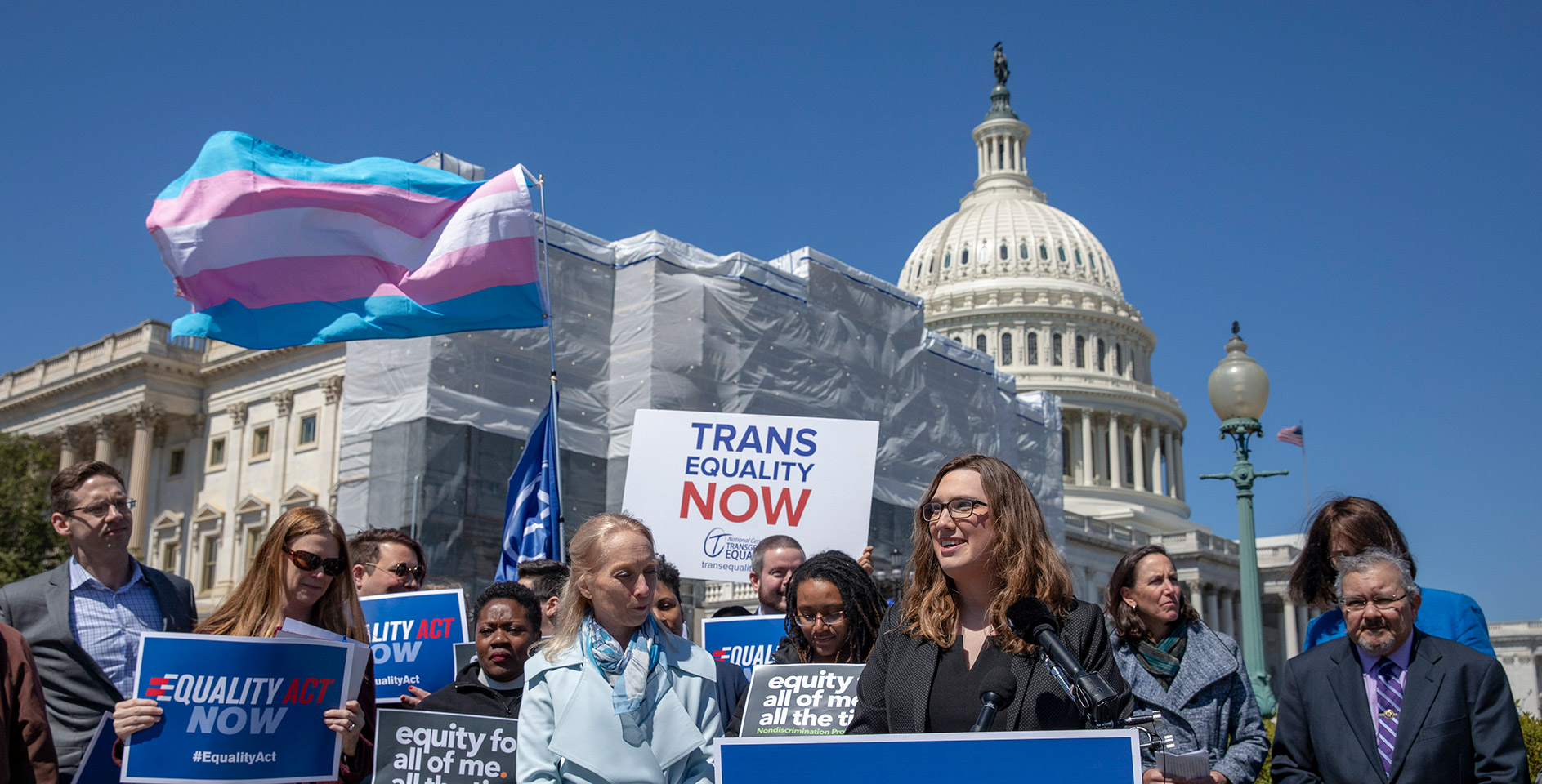On Thursday the U.S. House of Representatives voted in favor of a controversial bill titled the Equality Act. This legislation, filed as H.R. 5, seeks to expand the definition of “sex” to include “sexual orientation” and “gender identity” (SOGI) and would revise every title of the Civil Rights Act of 1964 to add these categories as new protected classes in the federal code. (See also: What is the Equality Act? and The Equality Act: A dangerous law with a clever name)
The vote was 224-206, with all Democrats and three Republicans voting in favor of the legislation. The Republicans who voted for the act were Brian K. Fitzpatrick of Pennsylvania and John Katko and Tom Reed of New York.
Last Congress, the Equality Act passed in the House, but did not come up for a vote in the Senate. When the House voted for the bill in 2019, the vote was 236-173, with 23 representatives not voting. Eight Republicans joined every Democrat to vote for passage of the legislation. The eight members of the GOP to vote for the bill were Mario Diaz-Balart of Florida, Susan Brooks of Indiana, John Katko, Tom Reed, and Elise M. Stefanik of New York, Greg Walden of Oregon, Brian K. Fitzpatrick of Pennsylvania, and William Ballard Hurd of Texas. Fitzpatrick and Katko were also co-sponsors of the bill.
In the Senate, Susan Collins of Maine was the only Republican in 2019 to co-sponsor the bill while Joe Manchin of West Virginia was the sole Democrat who was not a co-sponsor. Collins said this week she will not co-sponsor the legislation in the U.S. Senate this year. “There were certain provisions of the Equality Act which needed revision,” said Collins. “Unfortunately the commitments that were made to me were not [given] last year.”
Manchin also said in 2019 he would not support the legislation without changes. “I strongly support equality for all people and do not tolerate discrimination of any kind. No one should be afraid of losing their job or losing their housing because of their sexual orientation,” said Manchin. “I am not convinced that the Equality Act as written provides sufficient guidance to the local officials who will be responsible for implementing it, particularly with respect to students transitioning between genders in public schools.”
When the bill was introduced in the Senate in 2019, the GOP held the majority (53 seats) and Majority Leader Mitch McConnell refused to allow the bill to be voted on. President Trump was also expected to veto the legislation had it passed. This year the Senate is evenly divided, with 50 Republicans, 48 Democrats, and 2 Independents (Bernie Sanders of Vermont and Angus King of Maine) who caucus with the Democrats. If the Senate voted on the measure and Collins voted in favor while Manchin opposed, the result would be a 50-50 tie, which would be broken by Vice President Kamala Harris.
But before the bill would even come up for a vote, the bill would have to overcome a filibuster, an attempt to block or delay Senate action on a bill or other matter. The only formal procedure that Senate rules provide for breaking a filibuster is invoking Rule 22, which requires 60 members to end debate on most topics and move to a vote. This Senate rule is the reason almost all partisan legislation in the Senate, with a few notable exceptions, requires 60 votes rather than a 51 vote majority.
Senate Democrats wanting to stop the filibuster from being used to prevent passage of the Equality Act and other parts of their agenda have two main options. The first is to formally change the text of Senate Rule 22. But that would require support of two-thirds of the Senators present and voting. The second way is sometimes called the “nuclear option”—and more formally as “reform by ruling”—requires only a simple majority. This method was used in 2013 and 2017 to prevent filibusters of presidential nominees, including Supreme Court nominations.
However, this “nuclear option” is currently unlikely because at least two Democratic Senators—Manchin of West Virginia and Kyrsten Sinema of Arizona—oppose ending the filibuster.
Democrats wanting to pass the Equality Act are likely going to have to wait until after the midterm elections in 2022. Eight Republican senators are running for reelection, while four others have announced they are not seeking reelection. Ten Democratic senators are running for reelection, while no Democratic senators have announced plans for retirement. The Democrats would need to hold on to their ten seats and pick up at least one from the 12 seats currently held by Republicans.









